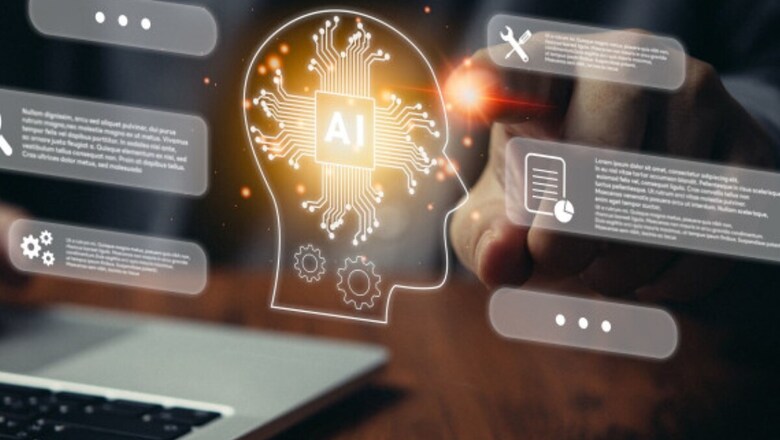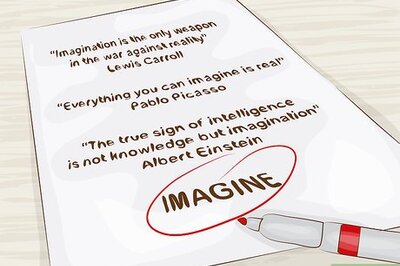
views
The future world is characterised by emerging technologies which focus more on continuous improvement or incorporation of new technology for improving something. This involves more of a new business model, which changes the traditional workplaces without much human involvement, with the help of Artificial Intelligence (AI) and machine learning, Cloud computing, Internet of Things (IoT), Blockchain, autonomous vehicles, etc.
This disruptive process is different from the traditional organisational transformational process characterised by emotional intelligence and social responsiveness in the work process, administration, etc. An organisation can work with robots and a few skilled staff in their headquarters with the help of fifth-generation technology generating revenue invalidating the traditional theories of transformation.
Emotional intelligence means the capacity or the ability to be aware of, control, and express one’s emotions and to handle interpersonal relationships prudently and compassionately. The requirement of emotional intelligence varies across circumstances, environment, and thus, even across jurisdictions. Handling the administrative architecture of developing economies demands a comparatively high level of emotional intelligence. In contrast to other developed countries, India has an immense young and working population and thus a joint working environment of robots and humans shall essentially be a key component of workforce in the tech era.
While the human component compassionately takes due care of the needs and requirements of the rural and vulnerable population, the tech component needs to effectively combine technology with public services to yield the best results. In this context, a threefold strategy may need to be devised, encompassing nurturing socioemotional skills, intellectual capabilities and knowledge of technology development. This necessitates training on emotional intelligence and at the same time on how technological tools could be adapted to their respective careers and requirements of skills demanded.
In India, the information technology or services sector has already witnessed the impact of emerging technologies and is a world leader in this regard. Generally, this sector is demonstrated as one witnessed by a hectic work environment and high level of competition domestically as also globally between companies. This demands the application of human skills to the potential and in this context, the concept of emotional intelligence has huge significance as understanding, identifying and regulating one’s emotions and understanding the emotions of others is imperative. Employers, thus, seek candidates with a high emotional quotient (EQ). There is no doubt that a conducive work environment with a manager having high EQ ensures high job productivity of the team.
The five pillars of emotional intelligence are self-awareness, self-management, motivation, empathy and relationship management. Self-awareness is a key component of emotional intelligence as it enables one to understand one’s skills, weaknesses, motivations, values, goals, etc; this helps tackle his difficult times by engaging in additional work that might inspire and motivate him. Self-management essentially helps one to manage his difficult or stressful environment thoughtfully and clear-headed rather than impulsive or quick actions. Decisions taken with a calm mind result in effective and optimum outputs. Motivation is another component.
Motivation and risk aversion have a significant relationship as those with low motivation are likely to be risk averse which may impact the morale of the team working under him. Empathy on the other hand helps one to welcome and appreciate different points of view to enable problem-solving and facilitate innovation and is a key point while negotiating with diverse customers and stakeholders. Relationship management is another key component as a manager with outstanding relationship and management skills can inspire and develop and guide his team members, their performance and productivity.
Emotional intelligence is also relevant when designing technology solutions. Technology solutions that although well-intended, often result in information fragmentation, and consequently poor delivery of care. The best example is the health sector. Developing countries, where health systems are weak, need to own a digital health strategy that works and leads towards universal health coverage and person-centred care. It is also necessary that countries need to adopt digital health which best suits their health vision, needs, their availability of resources and key values. The strategy should emphasise upon the ethical and appropriate use of digital technologies to bridge the digital divide and ensure inclusion across the economy, wherein, emotional intelligence has much relevance. This strategy will promote ways to protect populations against the misuse of information, cyber-attacks, fraud, fake news, racism and other human rights violations.
The present information technology and industrialised world is characterised by innovations which are imitated/diffused quickly though the same is protected by intellectual property rights. Innovation emphasises on the introduction of new things which brings benefit. This may be in the areas of markets, production of goods and services, systems, processes, but also cultural behaviour, organisational structures and their management.
Today’s world is thus characterised by complex interlinkages and the traditional tools of management may need to be fine-tuned to adapt to disruptive technology challenges which essentially require an emotional intelligence component.
Surjith Karthikeyan serves as civil servant at Indian Ministry of Finance. Views expressed in the above piece are personal and solely that of the author. They do not necessarily reflect News18’s views.



















Comments
0 comment